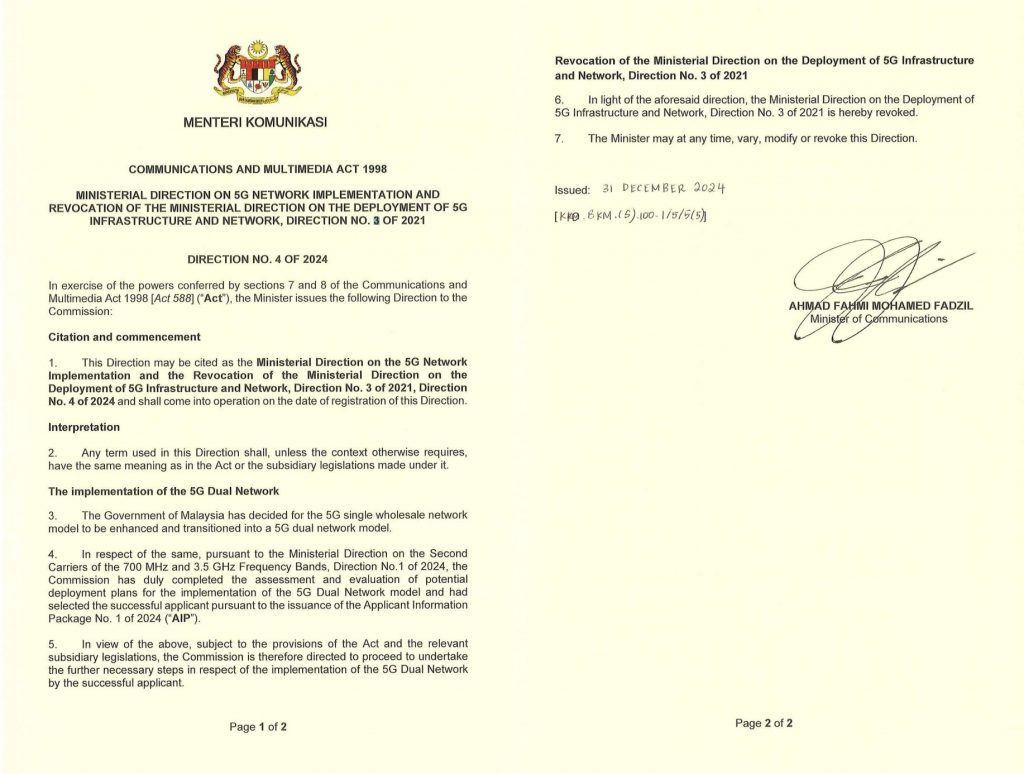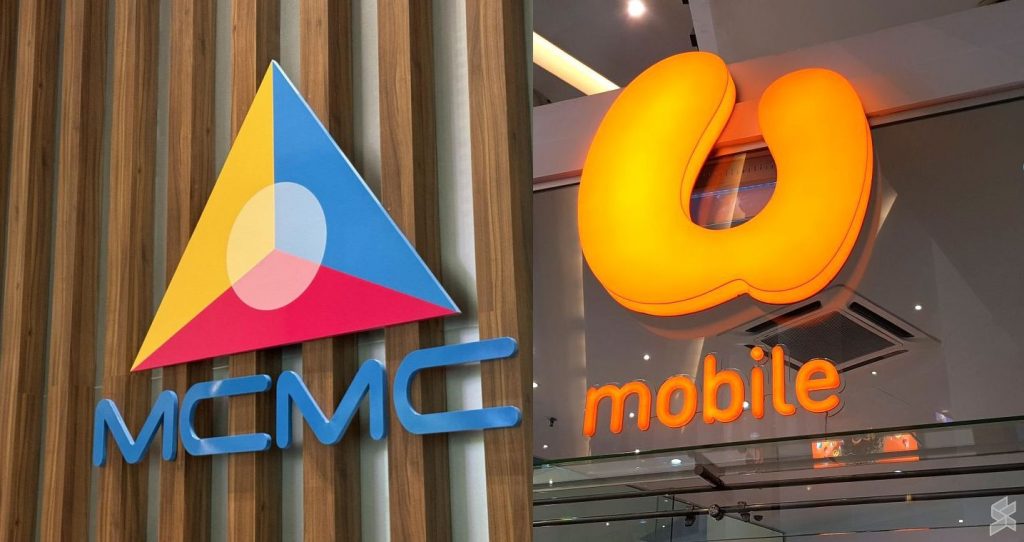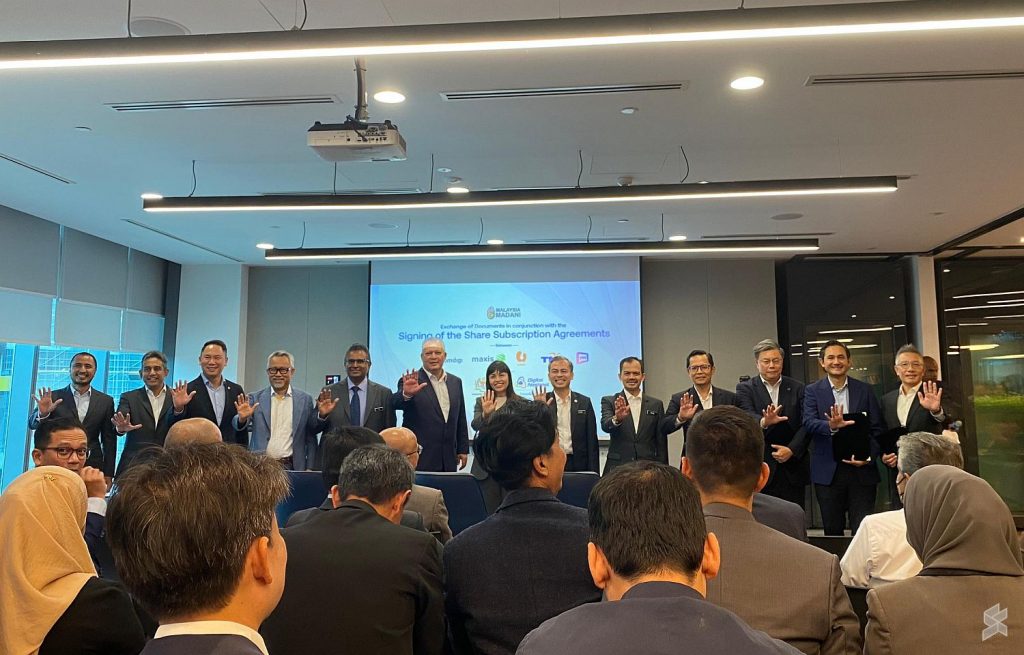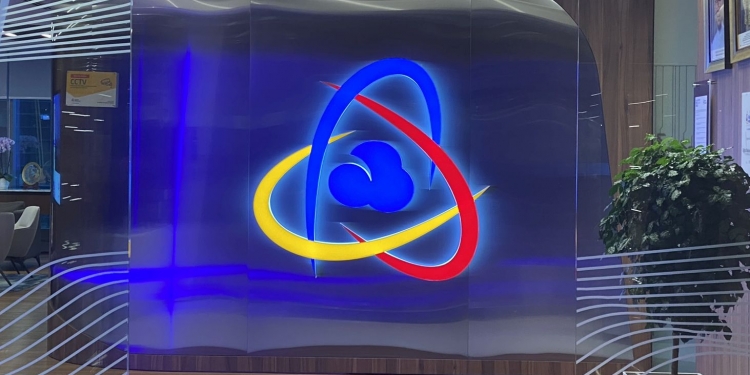Digital Nasional Berhad (DNB) officially loses its status as a Single Wholesale Network. Communications Minister Fahmi Fadzil has issued a Ministerial Direction No.4 of 2024 on 31st December 2024 that the current single wholesale network model will be enhanced and transitioned into a Dual 5G Network model.
This comes after the appointment of a telco (U Mobile) to carry out the second 5G network, months after the Malaysian Communications and Multimedia Commission put out an Applicant Information Package (AIP) on 1st July 2024.
DNB’s status as Single Wholesale Network has been revoked
In the same Ministerial Direction, Fahmi has revoked the previous Ministerial Direction No. 3 of 2021 issued by Former Minister Dato Saifuddin Abdullah which appointed DNB as the single entity to carry out Malaysia’s 5G rollout.
DNB was established as a Single Wholesale Network during the Muhyiddin administration to carry out the rollout of Malaysia’s first and only 5G network. Under the Ministerial Order issued on 31st May 2021, DNB was meant to be wholly-owned by the Ministry of Finance and to be the single neutral party to undertake the deployment of 5G infrastructure and network nationwide and to provide wholesale 5G services.

By revoking the previous order, the Malaysian government is paving way for the second 5G network to take place. MCMC is also directed to proceed to undertake the future necessary steps of the implementation of the 5G Dual Network by the successful applicant.
MCMC yet to provide conditions and deliverables for second 5G network

Two months after U Mobile was announced as the winner, the MCMC has yet to announce the assignment of spectrum, 5G rollout targets and conditions of the second 5G network.
The decision to appoint U Mobile to carry out the implementation of the second 5G network has certainly raised a lot of eyebrows as U Mobile was the smallest telco among the four contenders in terms of existing network sites, subscribers and revenue.
The regulator has defended its decision to appoint U Mobile following public criticism. It said that the decision was based on a combination of factors which include business and technical plans, consumer complaints and satisfaction records, and its performance in carrying out other infrastructure initiatives. This includes contributions to the Universal Service Provision (USP) projects such as JENDELA Phase 1 and other 4G upgrading projects, in line with MCMC’s commitment to improve consumer experience and service excellence.
What happens to DNB? How will the telcos pay back?

The Dual 5G network was meant to create a healthy competitive environment which should result in accelerated 5G rollout and improved pricing and services to consumers and enterprises. At this point, questions remain unanswered about the sustainability of the Dual 5G Network model as there appears to be an imbalance between the players involved.
Most importantly is how the government going to ensure the sustainability of DNB which has been established from day one as a single wholesale network. As raised by Digital Minister Gobind Singh, DNB was meant to be developed with a budget of RM16.5 billion across 10 years and it is mostly funded via private borrowings which include loans guaranteed by the government and other sources of financing. To date, the network has spent RM5 billion to develop and implementation of the 5G network.
The minister added that the second 5G Network can’t proceed until the funding of the Ministry of Finance into DNB are paid back by the telcos and this was a requirement as part of Malaysia’s process to transition from a single wholesale network to a dual network model. After the second 5G network winner was announced, questions remain on the current telco shareholding in DNB and how are they taking over the existing loans without affecting the government and taxpayers.
If U Mobile or other telcos were to exit from DNB to build the second 5G network, how much they would need to pay back to the government especially if they were to terminate their existing 5G access agreement ahead of its 10-year contract?
[ SOURCE ]







